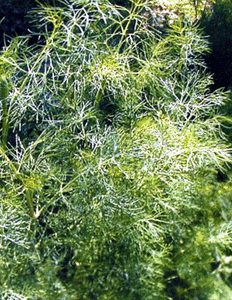Sustainable landscape planting in the Negev Desert
Kotzen, Benzion 
![6new.jpg [thumbnail of 6new.jpg]](https://gala.gre.ac.uk/6512/3.hassmallThumbnailVersion/6new.jpg)  Preview |
Image (JPEG)
6new.jpg - Supplemental Material Available under License Creative Commons Attribution Non-commercial No Derivatives. Download (104kB) |
Preview |
PDF (Pages containing signatures redacted)
Benz Kotzen 2007 - Redacted.pdf - Published Version Available under License Creative Commons Attribution Non-commercial No Derivatives. Download (68MB) | Preview |
Abstract
The research concerns the potential for using the native plants of the Negev Desert in southern Israel in the Negev, which will help to promote more sustainable landscape development in the region.
The study combines the data collection in the field of 163 plant species located in the Negev desert and the literature review of these species. The plants’ key physical, visual and aesthetic characteristics as well as their natural growing conditions are analysed. The analysis leads to an evaluation of the Negev plants in terms of suitability for particular uses in the Negev landscape.
The conclusion reached is that the main reason for the non-use of the native plants is that they are still considered a part of the hostile desert environment. They have not as yet been ‘culturalised’.
The advantages/disadvantages of using the native plant species is considered for each plant using a natural/quasi-experimental method, where each of the 163 species located by the author is analysed in terms of its physical and aesthetic characteristic and potential use. Furthermore, the individual species are matched with an exotic species and evaluated according to their potential landscape and ecological effects, water use and their potentials for environmental use in natural areas, the middle landscape and garden locations. The analysis and evaluation of the native Negev species confirms that 95%-96% of the native Negev plants have the potential for environmental use in natural areas and the middle landscape and 69% have the potential for garden use.
A scientific study of the shade characteristics of 6 native Negev trees confirms that these trees provide an equal, if not better shade, compared to two control species and thus their potential for use in creating shade and altering micro-climate has been proven.
The research also proposes a series of micro-landscape solutions, which will help to promote plant establishment and growth in the Negev as well as other desert environments. These proposals are seen as part of the agenda for establishing more sustainable landscape development in the Negev.
| Item Type: | Thesis (PhD) |
|---|---|
| Additional Information: | uk.bl.ethos.444458 |
| Uncontrolled Keywords: | Negev Desert, native plants, landscape paradigms, sustainability |
| Subjects: | N Fine Arts > NA Architecture S Agriculture > SD Forestry |
| Pre-2014 Departments: | School of Architecture, Design & Construction School of Architecture, Design & Construction > Department of Architecture & Urbanism |
| Last Modified: | 14 Oct 2016 09:16 |
| URI: | http://gala.gre.ac.uk/id/eprint/6512 |
Actions (login required)
 |
View Item |
Downloads
Downloads per month over past year
 Tools
Tools Tools
Tools